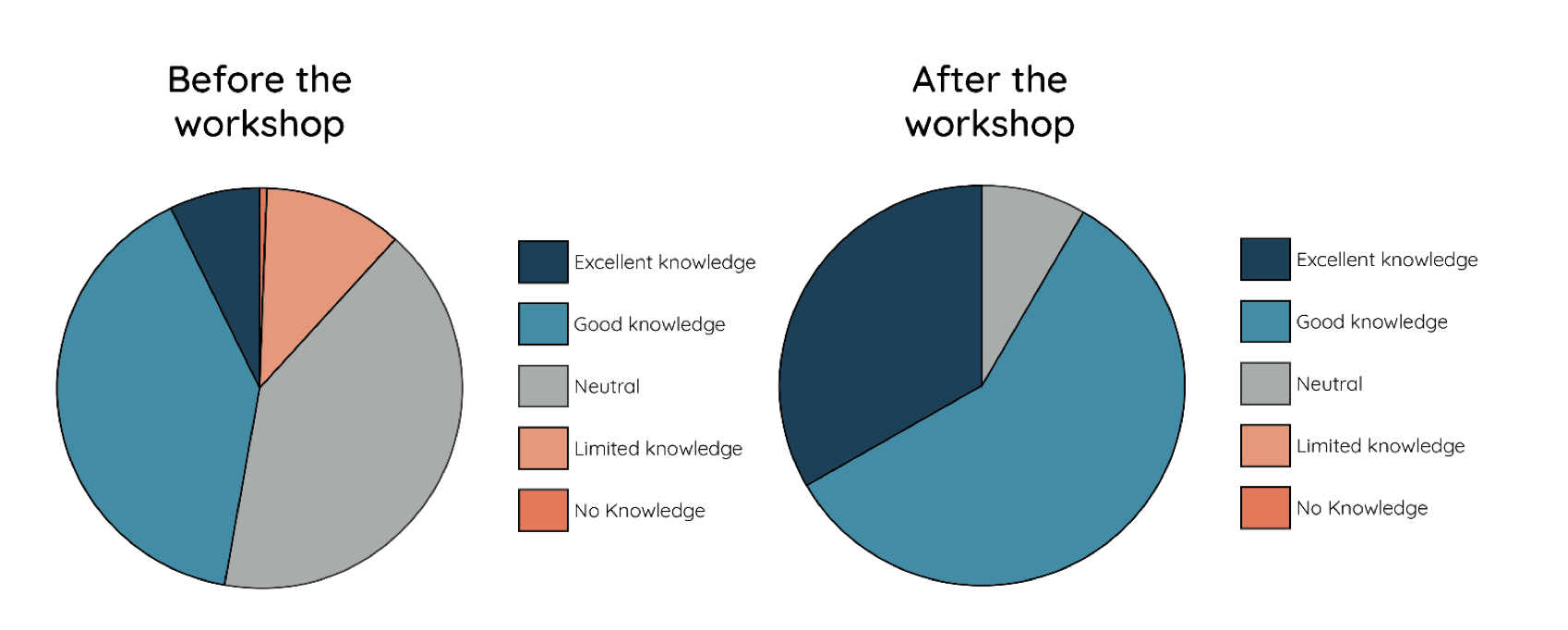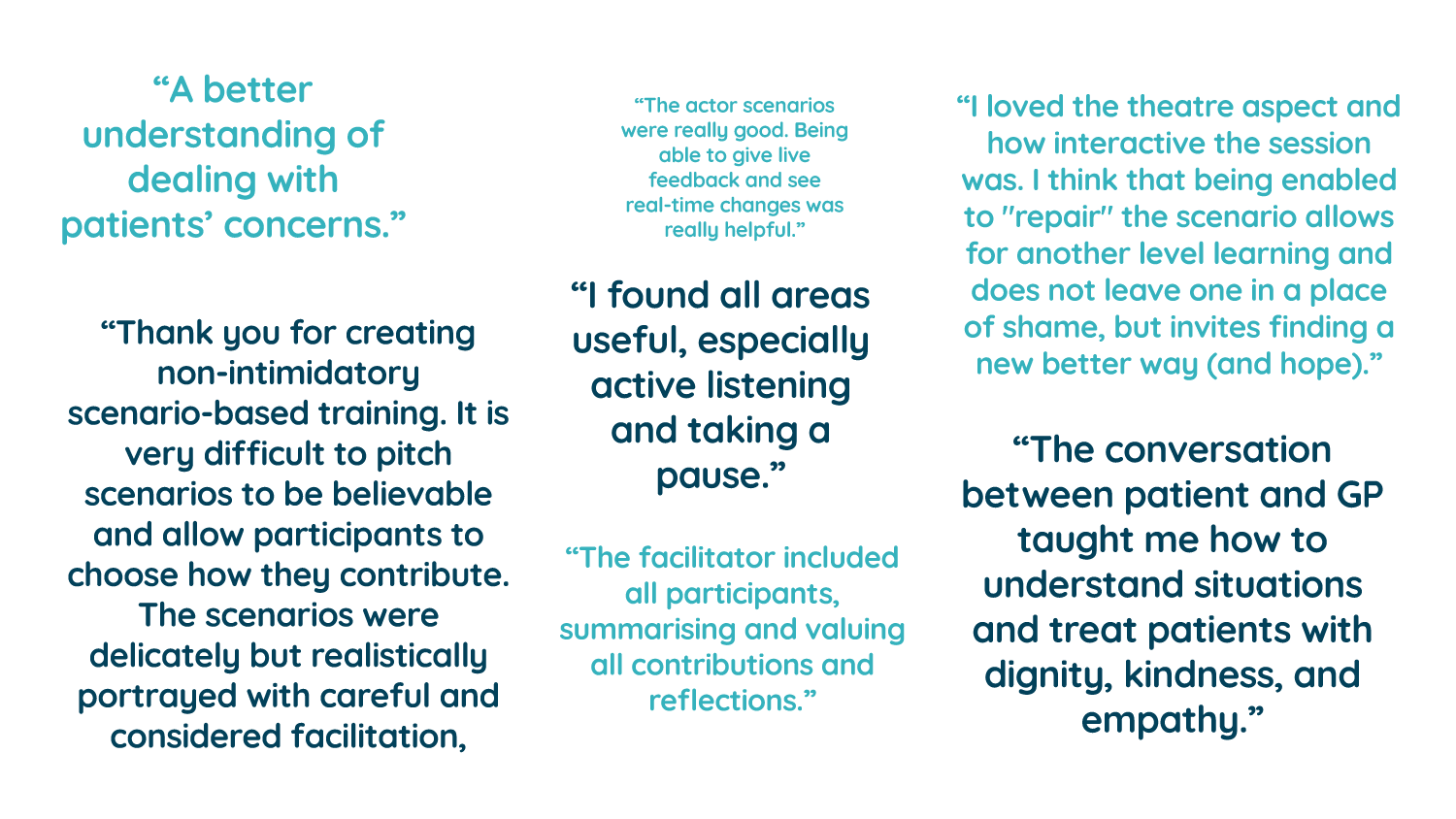“What Matters to Me” workshops
The Brief
This case study will outline the implementation of a simulation-based workshop designed to support clinical and non-clinical staff at a large NHS trust in developing communication techniques to address the concerns of both colleagues and patients. The study examines the impact of the workshop on participants’ ability to understand what may impact on patient experience and the importance of communication skills.
The problem
Communication difficulties are often at the heart of challenging dynamics and can contribute to the experience of both patients and colleagues significantly. Trust staff required support in developing their communication with colleagues and patients. An additional desired outcome was a reduction in the number of complaints received, as a result of challenging interactions.
Requirements
The trust partnered with SimComm Academy to develop a simulation-based workshop, delivered both face-to-face and online, required to provide clinical and non-clinical trust staff with the opportunity to learn how to identify behaviours that may impact on the patient experience and therefore result in complaints, in addition to consideration of what may be behind these behaviours. It was also important for participants to explore how these interactions can be modified using clear verbal and non-verbal empathic communication and active listening. The role of supporting and empowering others to seek support was also an important theme for discussion. It was essential to ensure that the scenarios used were based upon authentic patient experiences and real patient complaint that had been made within the trust.
Tangible Results
Analysis of the evaluations demonstrate a clear shift in knowledge from before the workshop to after the workshop. This is shown in figure 1; before the workshop 53% of the participants expressed either limited, neutral, or no knowledge about the issues and behaviours that may impact on patient experience whereas following the workshop, 92% of the participants expressed excellent or good knowledge in this area.
A comprehensive breakdown of participants’ self-assessed learning outcomes before and after the workshop is shown in Figure 2.
The evaluation also encouraged the participants to note any qualitative comments they had on the workshop. Participants noted the benefits of being able to see the impact of the changes in real-time within the scenarios and felt that the workshop enhanced their understanding of managing patient concerns (figure 3).
Participants were also invited to share their “pledges,” outlining their commitment moving forward. Figure 4 shows some examples of participant pledges.
Conclusion
The simulation-based workshop, “What Matters to Me,” delivered to clinical and non-clinical staff significantly aided them in developing their skills in identifying behaviours and issues that may impact on patient experience, in addition to improving their communication skills in managing interactions with empathy and kindness.











